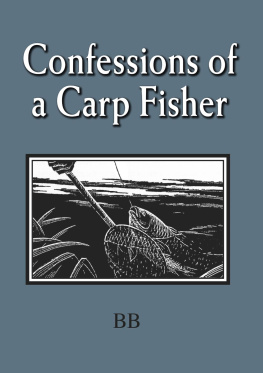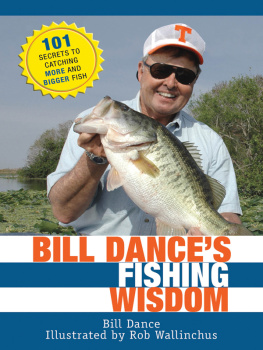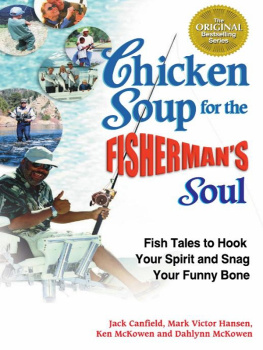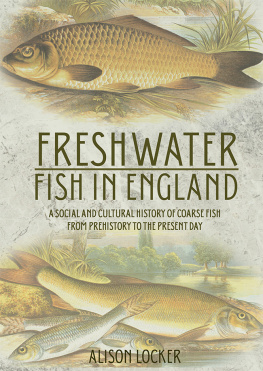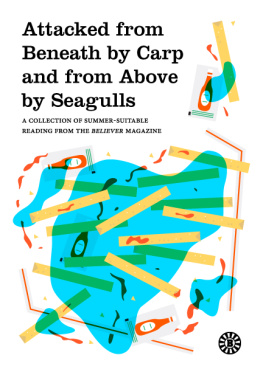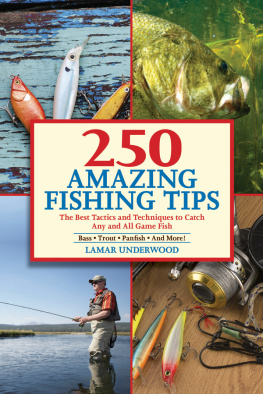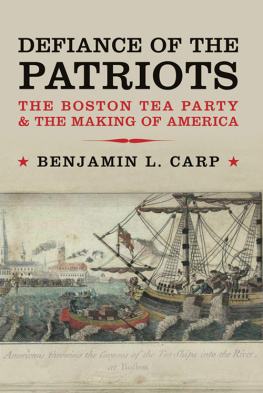A cup of tea with BB
W hen I first met BB, back in the early 1980s, I probably knew this book better than he did. It was a fine summer afternoon and we sat in his garden feeding the carp in his pond while drinking tea and, naturally, talking about carp fishing. I came up with a quotation which I said distilled all the magical essence of carp fishing and for a moment he looked slightly mystified, as if trying to remember its source. Then it came back to him and he laughed: hed written it himself, over 30 years previously (the passage on night fishing in Chapter XII). Suddenly, all the memories welled to the surface and he was describing the wonderful lakes and pools that he first explored years before carp fishing was really born. And because I knew Confessions so intimately, it was almost as if we had shared those original exploits and could therefore remind each other of certain details from BBs encounters with monsters and enchanted waters. Obviously, there were lots of questions I wanted to ask, mostly about the places he fished, and what they were like back in the 30s and 40s. And where, exactly, was the exquisite sounding Woodwater Pool? Was it just a dream?
So much of Confessions reads like a dream, yet of its many other qualities the one I like best is its freshness. There is an innocence in the way the carp is perceived that makes the contemporary carp scene appear cold and deadly dull in comparison.
In his book, BBs enthusiasm for the fish knows no bounds, nor does his fascination with the creatures mysterious environment. It was the same kind of passion, though in a less concentrated form, that characterises that other much-loved fishing book, Mr Crabtree Goes Fishing by Bernard Venables, and maybe theres no coincidence that both books were written at exactly the same time, in the suddenly brighter seeming era immediately after the dark years of the second World War.
There may be a certain innocence in some of these confessions but there is also authority. Throughout his life, BB was an observant and expert naturalist. His studies of butterflies, for instance, especially the rare Purple Emperor, went way beyond mere field notes and book learning. These specialised interests all contributed to a deeper understanding of nature, a breadth of knowledge that makes BBs writing so convincing and which also make his infatuation with the carp so compelling.
While we were talking and drinking tea, BB showed me his carp tackle. He had one rod and had only ever used that one rod, a split cane Mk.IV carp rod, ever since Richard Walker made it for him in 1952. His reel was a wide diameter centrepin and he said just as he says in his book that his favourite method was float fishing, with something like a nicely painted peacock quill. BB had tried legering and fishing a floating bait, but he said nothing was so exciting as watching a float. And I had to agree with him. He detested electric bite alarms obviously I was with him there as well and he just couldnt understand the present carp anglers obsession with complex rigs, multiple rods and chemically enhanced baits. Science and technology were the evils he wanted to escape from when he went fishing. The idea of taking these things to the waterside was simply ludicrous. But apart from his dislike of the mechanisation of carp fishing and how much more he would have hated the 21st century trends BB was not really that interested in even traditional tackle and methods. All that truly interested him was the creature itself.
Over a third pot of tea, BB said that he had just recently caught one of the largest carp in his life a fifteen pounder from his local village pond. And yet, despite the fact that hed never caught a really huge fish, or even a twenty pounder, he still dreamed that his next cast might connect him to the greatest carp that ever lived. This dream had once driven him to seek out all kinds of secretive, half forgotten lakes at a time when the English landscape was a lot quieter and when life ticked to a much slower clock than it does today. BB always imagined that he would eventually confront his monster at one of these remote and beautiful places and the fact that he caught mostly quite modest specimens never discouraged him. The original dream, which BB evokes so vividly in this book, was far more important than any individual fish, no matter what its size.
By immersing himself in carp fishing, BB discovered that he could re-enter a mythical element in the landscape which, especially as a writer and artist, he found irresistible. It is this magical dimension, surrounded by a vignette of brilliantly observed natural detail, that makes Confessions such an original work, yet also such a classic. It is also the reason why it will always be my favourite fishing book.
Chris Yates
Tollard Royal
Wiltshire
I CAN do no better, at the very beginning of the first chapter, than to quote a passage from Mr. Ransomes delightful collection of fishing essays Rod and Line, Jonathan Cape Ltd., which passage first put into my mind this little book.
A true record of the life of an habitual carp fisher would be a book to set beside De Quinceys Confessions of an Opium Eater, a book of taut nerves, of hallucinations, of a hypnotic state (it is possible to stare a float into invisibility), of visions, Japanese in character of great blunt-headed, golden fish, in golden spray, curving in the air under sprays of weeping willow, and then rare moments when this long-drawn-out tautness of expectation is resolved into a frenzy of action.
This then is what I am setting out to do, to record my own experiences with these fish and to include the experiences of other people, who have brought to bank and safely cased specimen carp.
First, however, you must know that among fishermen there are many divers kinds and they fall into definite classes. The wel1-to-do are game fishers, angling for salmon and trout; rarely does the rich man think that coarse fish are worth his notice. He is a man who needs movement and change, his tastes are expensive, so is his tackle. He will not read this book.
Salmon and trout are the rich mans sport; the poor man must be content with coarse fish. Among coarse fishers also there are many types. There is the man who, if he were rich and in a different station of life, would be a fly fisher, a man who must have constant action, and, if possible, plenty of sport. He does not try for the big stuff, he goes all out for the roach, perch, and bream fish which will, as a general rule, always provide a full keep net or basket. He does not catch fish to eat or to preserve as specimens. The roach fisher the successful roach fisher is not to be sneered at. He is an artist. His tackle is fine, his strike is delicate and true, as swift and polished as the action of the fly fisher, he casts beautifully with unerring aim. By the end of the day his keep net is full to overflowing usually with dead or dying fish which might just as well be set free. But he is an artist all the same your skilled roach fisher. Then the perch fisher he too needs plenty of action and good bold bites there is always something of the schoolboy about your blue-blooded perch fisher. The bite of the perch makes glad the heart of a boy it is a determined, rather leisurely bite. Unlike the roach expert, the perch fisher will sometimes take his catch home and eat them and very good they are (so are roach for that matter, if you know how to cook them).

